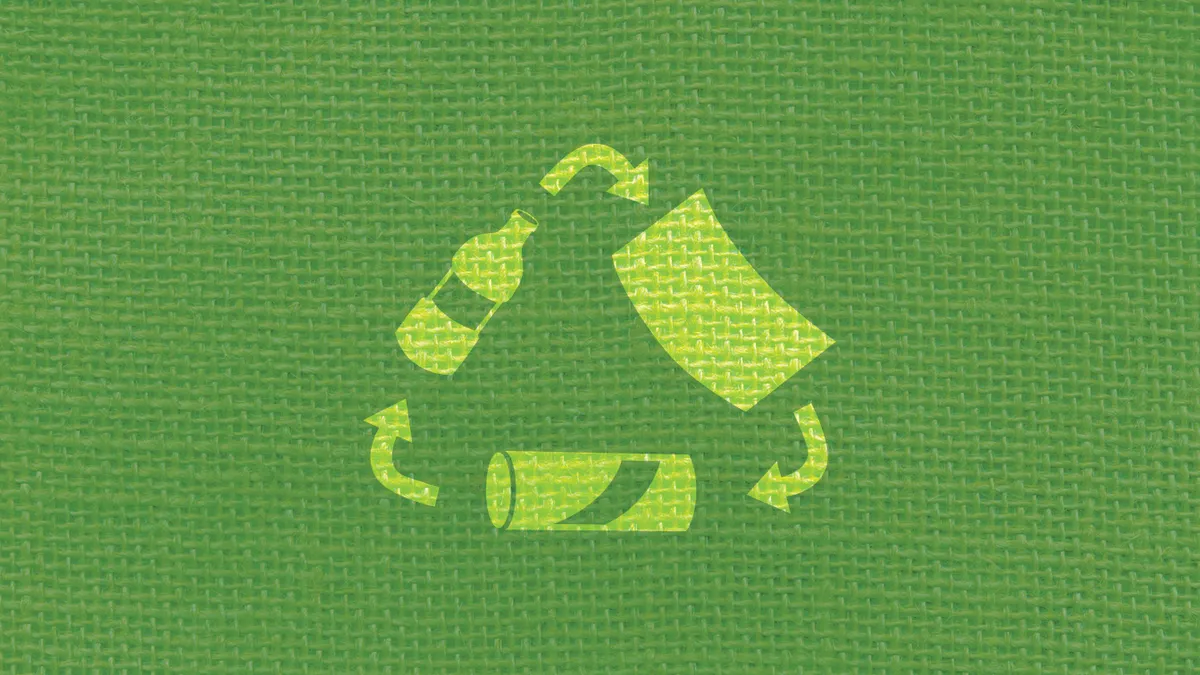Dive Brief:
- SwagCycle, a new donation and recycling service, was recently launched by the Massachusetts-based Grossman Marketing Group to demonstrate that excess promotional products don't have to end up as waste.
- Recent examples of the recycling service include working with a Boston company to process textiles and Call2Recycle for handling battery packs. The goal is to develop a national network of partners to donate or recycle unique items.
- SwagCycle is also considering potential partnerships with convention centers or conference organizers to offer drop-off bins for post-event cleanup, given the volume of promotional products often left afterwards.
Dive Insight:
Promotional products have become ubiquitous at conferences, awards events, stores, street fairs and most public settings. President Barack Obama may have signed an executive order in 2011 to stop spending taxpayer dollars on "extraneous promotional items," and there have been critiques about the waste implications of conference swag, but the demand appears to persist. The Advertising Specialty Institute estimates the swag sector is worth nearly $25 billion and growing.
Promotional products are now the largest line of business for Grossman Marketing, with clients including major sports teams, universities, electronics and clothing companies, award shows and environmental nonprofits.
While traditional notions of swag may focus on plastic water bottles, pens or other tchotchkes, Grossman Marketing's offerings show that norm has begun to change. Clients are now more interested in reusable metal water bottles, bags or battery packs for charging electronic devices, along with ever-popular T-shirts. Grossman anticipates future corporate RFPs for new products will begin to reflect those desires even more by setting higher standards for material quality and recyclability.
Co-President Ben Grossman, a member of the Product Stewardship Institute's advisory council, said he works with clients "to make high quality products that people will use again and again." When asked about excess product waste, he also noted an effort to ensure that customers don't purchase too much at one time. “We advocate for ways to minimize inventory. So they keep their money invested in fresh and new, rather than old and stale."
While it's hard to track how those items get used once consumers take them home, it is a well-known issue in the sector that some products never make it out of the box. Recent cases SwagCycle has worked on include relocating water bottles with outdated inspirational messaging to Boston family nonprofits and providing a dental charity with a large batch of toothbrushes carrying a company logo made obsolete through acquisition. Hundreds of misprinted T-shirts may end up with a local textile recycler to become rags for painters or boat builders, while branded battery packs can go to electronics recyclers.
These offerings may seem niche, but Grossman is banking on growing interest amid the rise of corporate sustainability goals. As more entities look for ways to prove their progress on diverting materials from the waste stream from landfills or incinerators wherever possible, the interest in textiles, e-waste and other smaller categories is widely expected to grow in the years ahead.















